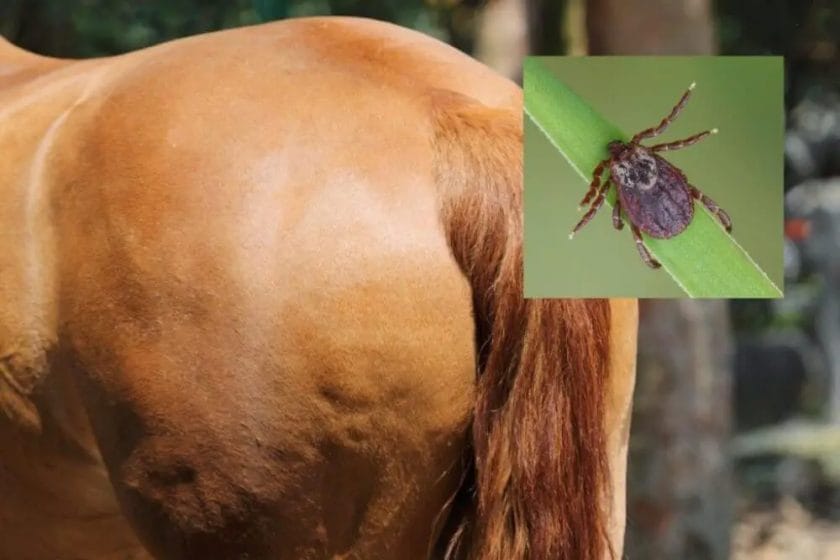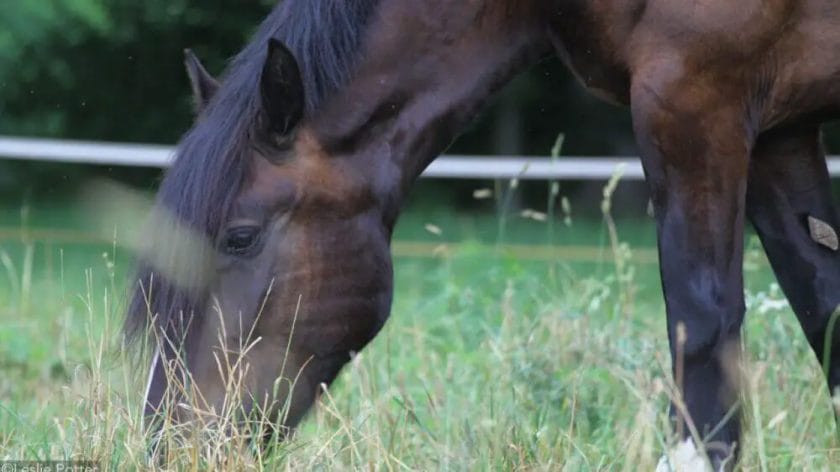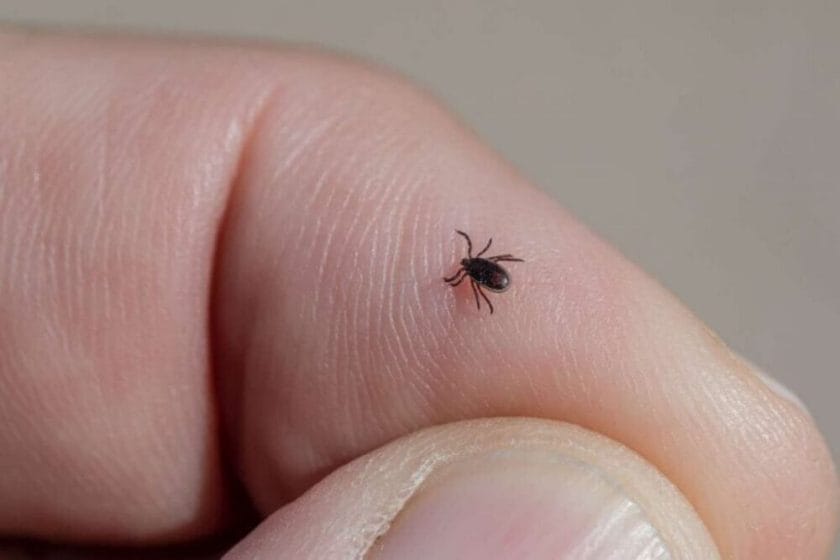Keeping ticks off horses is crucial for their health and well-being. Ticks are not only irritating to horses, but they can also transmit various diseases. To effectively prevent ticks, regular grooming is essential. Inspect your horse’s coat for any signs of ticks and promptly remove them using tweezers or a tick removal tool. Additionally, consider using tick repellents and topical treatments that are safe for horses. Creating a tick-free environment through proper pasture management and regular maintenance can also help in keeping these pesky parasites at bay.

Essential Oils for Keeping Ticks Away from Horses
Ticks are a common nuisance for horses, as they can cause discomfort and transmit diseases. While there are various commercial tick repellents available in the market, many horse owners prefer using natural solutions like essential oils. These oils not only help repel ticks but also offer additional benefits for the well-being of your horse. In this section, we will explore some of the most effective essential oils for keeping ticks away from horses and discuss their benefits.1. Peppermint Oil
Peppermint oil is known for its refreshing scent and natural insect-repelling properties. Its strong aroma acts as a deterrent for ticks and other pests. Additionally, peppermint oil has a cooling effect on the skin, which can provide relief from itching caused by tick bites. To use peppermint oil, dilute it with a carrier oil such as coconut oil and apply it to your horse’s coat, particularly around the neck, mane, and tail.2. Lavender Oil
Lavender oil not only smells delightful but is also highly effective in repelling ticks. Its calming properties help soothe your horse and reduce stress levels. Lavender oil can be diluted with water and sprayed onto the horse’s coat or added to shampoo during bath time. This oil is safe for direct application and can also be used on tick bites to alleviate itching and inflammation.3. Cedarwood Oil
Cedarwood oil has been used for centuries as a natural insect repellent. It contains compounds that repel ticks and other pests, making it an excellent choice for keeping them away from your horse. Cedarwood oil can be mixed with a carrier oil and applied to the horse’s coat. It is important to note that cedarwood oil should be avoided in pregnant mares as it may induce contractions.4. Eucalyptus Oil
Eucalyptus oil has a strong, camphoraceous scent that repels ticks and other insects. Its antiseptic properties also help prevent infections caused by tick bites. Dilute eucalyptus oil with a carrier oil and apply it to your horse’s coat, paying attention to areas where ticks are commonly found, such as the legs and belly.5. Geranium Oil
Geranium oil is another effective essential oil for repelling ticks. It is particularly known for its ability to repel ticks that carry Lyme disease. Geranium oil can be diluted and applied to your horse’s coat, focusing on areas prone to ticks. It is important to note that while geranium oil is generally safe for horses, it should be used with caution in pregnant mares.Benefits of Using Essential Oils for Tick Prevention
Aside from repelling ticks, essential oils offer several benefits for the overall well-being of your horse. Some of these benefits include: – Natural and safe: Essential oils are derived from plant extracts and are free from harmful chemicals that may be present in commercial tick repellents. – Soothing and calming: Many essential oils have calming properties that can help relax your horse and reduce stress levels. – Skin conditioning: Essential oils often have moisturizing and conditioning properties that can improve the health and appearance of your horse’s coat. – Versatility: Essential oils can be used in various ways, including diluting them for topical application, adding them to grooming products, or using them in diffusers to create a tick-repellent environment. In summary, essential oils can be a natural and effective solution for keeping ticks away from horses. Peppermint, lavender, cedarwood, eucalyptus, and geranium oils are among the best options for tick prevention. Their natural properties not only repel ticks but also offer additional benefits for your horse’s well-being. Remember to always dilute essential oils and perform a patch test before applying them to your horse’s skin.
Effective Tick Repellents for Horses
Ticks can be a nuisance for horses, causing discomfort and potentially transmitting harmful diseases. To protect your equine companion from ticks, it is crucial to use effective tick repellents. In this section, we will explore some of the best tick repellents available for horses.
1. Pyrethroid-based Sprays
Pyrethroid-based sprays are popular tick repellents for horses. They contain synthetic versions of pyrethrin, a natural insecticide derived from chrysanthemum flowers. These sprays are effective against ticks, fleas, mosquitoes, and other biting insects. Pyrethroid-based sprays provide immediate protection and usually remain effective for a few days.
When using pyrethroid-based sprays, it is essential to follow the manufacturer’s instructions and avoid spraying near the horse’s eyes, nose, and mouth. Additionally, these sprays may require reapplication after heavy sweating or if the horse gets wet.
2. Permethrin-based Spot-on Treatments
Permethrin-based spot-on treatments are another effective option for tick control in horses. These treatments typically come in small vials and are applied directly to the horse’s skin, usually along the backline or at specific points recommended by the manufacturer.
Permethrin is a synthetic compound that exhibits strong insecticidal properties. It repels and kills ticks, protecting horses from infestations. Spot-on treatments provide long-lasting protection, usually lasting for several weeks.
3. Roll-on Repellents
Roll-on repellents are an alternative option for tick control in horses. These products come in a portable roll-on applicator, making it easy to apply the repellent directly to the horse’s skin. Roll-on repellents are typically non-toxic and safe for horses, providing immediate protection against ticks and other insects.
When using roll-on repellents, it is important to cover the horse’s entire body, paying special attention to areas where ticks are commonly found, such as the mane, tail, and underbelly.
4. Natural Repellents
For horse owners looking for natural options, there are several plant-based tick repellents available. Essential oils such as citronella, neem, and eucalyptus are known to repel ticks effectively.
These natural repellents can be found in sprays, gels, or wipes, making application convenient. While natural repellents can be effective, they may require more frequent application compared to synthetic alternatives.
5. Fly Sheets and Masks
In addition to using repellents, using fly sheets and masks can provide an extra layer of protection against ticks. Fly sheets cover the horse’s body, preventing ticks from attaching, while masks protect the horse’s face and ears.
It is important to ensure that fly sheets and masks fit properly to prevent any gaps where ticks can enter. Regular washing and maintenance of these protective gear are essential to maintain their effectiveness.
Keeping your horse protected from ticks is crucial for their well-being. The use of effective tick repellents such as pyrethroid-based sprays, permethrin-based spot-on treatments, roll-on repellents, natural repellents, and the use of fly sheets and masks can significantly reduce the risk of tick infestation and the transmission of tick-borne diseases. Remember to follow the instructions provided by the manufacturers and consult with your veterinarian for the most suitable tick repellent options for your horse.

Tick prevention practices for horse owners
Tick prevention is an important aspect of horse care for owners. Ticks are blood-sucking parasites that can transmit various diseases, such as Lyme disease and babesiosis, to horses. These parasites thrive in areas with tall grass, shrubs, and wooded regions, posing a significant risk to horses during outdoor activities. To minimize the risk of tick-borne illnesses, horse owners should implement effective tick prevention practices.
1. Regular grooming
Grooming your horse regularly is essential in preventing and detecting ticks. Use a fine-toothed comb or specialized tick removal tools to check for ticks in your horse’s coat, mane, tail, and ear regions. Pay close attention to areas with thinner hair, such as the belly and inside the legs. Remove any ticks you find promptly and dispose of them properly. Regular grooming also helps to maintain overall skin and coat health, reducing the risk of ticks infesting your horse.
2. Pasture management
A well-maintained pasture can significantly reduce the tick population. Keep grass and weeds short, as ticks prefer tall vegetation for survival. Regularly mow pastures and remove any brush or debris that may provide hiding places for ticks. Consider fencing off wooded or heavily wooded areas to minimize exposure to tick-infested habitats. Rotating pastures can also help reduce tick populations, as they are less likely to thrive in areas with regular disturbance.
3. Tick repellent products
There are various tick repellent products available specifically for horses. These can include sprays, spot-on treatments, and collars. Consult with your veterinarian to determine the most suitable options for your horse. Apply the repellent products according to the manufacturer’s instructions and ensure that you cover all areas of your horse’s body susceptible to tick infestation. Remember to reapply the products as recommended to maintain continuous protection.
4. Environmental control
Implementing environmental control measures can help reduce tick populations in the horse’s immediate surroundings. Consider using tick control methods such as applying acaricides to high-risk areas or employing biological control methods. Predatory insects and animals can help control tick populations naturally. Regularly inspect and maintain barns, stables, and other structures to prevent ticks from infesting these areas.
5. Vaccination
Consult with your veterinarian regarding tick-borne disease vaccinations available for horses. Vaccinations can provide an additional layer of protection against specific diseases transmitted by ticks, such as Lyme disease. Vaccination schedules and protocols may vary based on geographic location and the specific tick-borne diseases prevalent in your area.
6. Monitoring and early detection
Monitor your horse regularly for any signs of tick-borne illnesses. These can include fever, lameness, swollen joints, loss of appetite, and general lethargy. If you observe any concerning symptoms, contact your veterinarian immediately for proper diagnosis and treatment. Early detection and intervention can prevent the progression of tick-borne diseases and improve the chances of successful treatment.
In summary, tick prevention practices for horse owners involve regular grooming, pasture management, the use of tick repellent products, environmental control, vaccination, and monitoring for early detection. By implementing these practices, horse owners can minimize the risk of tick-borne illnesses and ensure the well-being of their equine companions.
Tick-borne diseases in horses and how to prevent them
Ticks are small arachnids that feed on the blood of animals, including horses. They are carriers of various diseases, known as tick-borne diseases, which can pose serious health risks to horses. In this section, we will discuss some common tick-borne diseases that affect horses and explore preventive measures that can be taken to protect them.
Lyme Disease
Lyme disease is caused by the bacterium Borrelia burgdorferi and is transmitted to horses through the bite of infected ticks. Common symptoms include lameness, fever, swollen joints, and fatigue. Early detection and treatment are crucial to prevent long-term complications.
To prevent Lyme disease, it is important to regularly check your horse for ticks, especially in areas where ticks are prevalent. Use tick repellents and consider vaccinating your horse against Lyme disease if recommended by your veterinarian.
Anaplasmosis
Anaplasmosis is caused by the bacterium Anaplasma phagocytophilum and is transmitted to horses through the bite of infected ticks. Symptoms may include fever, lethargy, loss of appetite, and jaundice. Severe cases can lead to organ failure.
To prevent anaplasmosis, implement tick control measures such as regular grooming, pasture maintenance, and the use of tick repellents. Consult with your veterinarian about the most effective tick prevention strategies for your horse.
Babesiosis
Babesiosis is caused by the protozoan parasite Babesia spp. and is transmitted to horses through the bite of infected ticks. Symptoms may include anemia, fever, jaundice, and dark urine. Severe cases can be life-threatening.
Tick control is crucial in preventing babesiosis. Keep pastures and paddocks well-maintained, remove tall grasses and brush, and use tick repellents. Regularly inspect your horse for ticks, especially in high-risk areas.
Piroplasmosis
Piroplasmosis is caused by the protozoan parasites Babesia caballi and Theileria equi and is transmitted to horses through the bite of infected ticks. Symptoms may include anemia, fever, jaundice, and weight loss. Piroplasmosis is a notifiable disease and can have serious economic implications.
To prevent the spread of piroplasmosis, quarantine and test new horses before introducing them to a herd. Implement strict tick control measures, including regular grooming, pasture management, and the use of tick repellents.
Preventive Measures
Aside from specific measures for each tick-borne disease, there are general preventive measures that can help protect horses from tick infestation and reduce the risk of tick-borne diseases:
- Regularly groom and inspect your horse for ticks, paying close attention to the head, neck, ears, and legs.
- Keep pastures and paddocks well-maintained, removing tall grasses, brush, and leaf litter where ticks may hide.
- Consider using tick repellents and consult with your veterinarian for appropriate products.
- Implement a tick control program, which may include environmental modifications, such as clearing tick habitats, and targeted use of acaricides.
- Follow proper biosecurity protocols when introducing new horses to a herd, including quarantine and testing for tick-borne diseases.
In summary, tick-borne diseases can pose significant health risks to horses. Taking preventive measures, such as regular tick checks, tick control, and vaccination when available, can help protect horses from these diseases. Consult with your veterinarian for a tailored tick prevention plan based on your horse’s specific needs and the prevalence of ticks in your area.
FAQs
1. How can I keep ticks off my horses?
To keep ticks off your horses, you can use tick repellent sprays or lotions that are specifically made for horses. Regular grooming and checking your horses’ coat for ticks can also help in early detection and removal. Additionally, keeping the pasture and barn area well-maintained and free of tall grass and brush can reduce the presence of ticks.
2. Are there any natural remedies to keep ticks off horses?
Yes, there are some natural remedies that can help keep ticks off horses. Essential oils like eucalyptus, lavender, and lemongrass can be mixed with a carrier oil and applied to the horse’s coat as a natural tick repellent. Additionally, planting tick-repelling plants such as rosemary, mint, or garlic in the vicinity of the horse’s living area can also help.
3. How often should I check my horse for ticks?
It is recommended to check your horse for ticks daily, especially during peak tick seasons. Run your hands over your horse’s entire body, paying close attention to areas such as the armpits, mane, tail, and between the legs. Promptly remove any ticks found to prevent them from attaching and potentially transmitting diseases.
Conclusion
In conclusion, keeping ticks off horses is crucial for their health and well-being. By implementing preventive measures, such as regular grooming and the use of tick repellents, horse owners can significantly reduce the risk of tick infestation. Additionally, creating a tick-free environment through proper pasture management and regular inspection of the horse’s living areas is essential. By practicing these measures consistently, horse owners can minimize the chances of tick-borne diseases and ensure the overall health of their horses. Stay vigilant and proactive in protecting your equine companions from ticks, and they will thrive in a tick-free environment.
